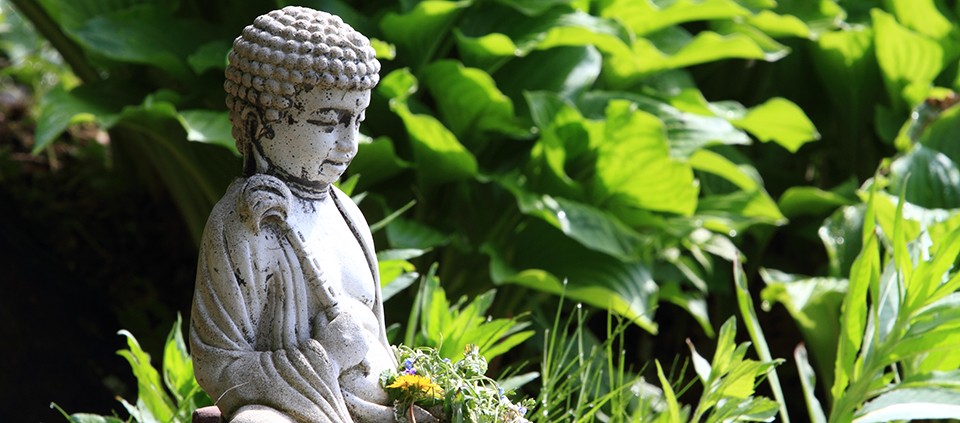The Consequences of Compassion

Metta meditation has been extensively studied, and its transformative potential ranks it one of the most promising single practices of all. If you seriously practice just one exercise, I’d put all my money on this one. A study at Stanford’s CCARE (Center for Compassion and Altruism Research and Education) program on metta found that its compassion cultivation training program successfully improved not only the ability to experience self-compassion but also the ability to express it and receive it from others. FMRI studies led by Richard Davidson highlight how metta practices ignite neural structures associated with compassion, such as the insula and cingulate cortices of the limbic system.
Inner compassion cultivated through metta can actually alter our behavior in the world outside. In one study using the so-called Dictator Game, participants were given $20 when they won a coin flip with an invisible partner, and then invited to give as much or as little they chose to their losing partner; people who practice metta meditation gave significantly more of their money to their anonymous partner. In a variant of the game where subjects act as observers and can spend their own money to redistribute the wealth, compassion meditators give up substantially more of their own money in order to level the playing field. Compassion, it seems, converts the Scrooge in all of us.
Those good wishes for all beings come right back around and hit us where it counts the most. Sustained metta meditation has been shown to decrease stress levels while increasing immune function; it’s also shown to reduce pain and anger. Metta meditation may even slow aging: several studies have shown that frequent compassion meditators have longer telomeres—the caps on each strand of DNA that shorten as cells divide, leading the cell to eventually stop growing and ultimately die. Shorter telomeres typically correlated with accelerated aging and deteriorating health. In some cases, meditation may not just slow that process but actually replenish the length of telomeres, allowing cells to survive longer.
The role of telomeres in human health is still not completely understood, and while compassion may not be a fountain of youth, it will certainly help us enjoy the time we have. Positive psychologist Barbara Fredrickson found that a seven-week course in metta significantly increased participants’ daily experience of positive emotions and their sense of social integration. That feeling of social integration—of belonging and being connected in a community—may be the most crucial benefit of all.
Take It to the Streets
All that compassion will do you, and everyone else, precious little good if it stays cooped up inside your head. Sonya Lyubomirsky studied what happened when she challenged her students to perform five random acts of kindness in a week. Her results were somewhat unexpected: students who divvied up their kindness throughout the week emerged no different than the group that did nothing at all. But students who loaded up all their kindnesses into a single day were significantly happier and behaved in kinder ways throughout the week, even when they hadn’t penciled extra kindness into their calendars.
This seeming paradox unravels a bit when we remember that, since kindness passes through the pleasure centers of the brain, it is subject to the same process of hedonic adaptation [the observed tendency of humans to quickly return to a relatively stable level of happiness despite major positive or negative events or life changes] as all the other pleasures. Lyubomirsky hypothesized that students who diluted their kindness throughout the week weren’t able to engage the circuitry of pleasure giving beyond the threshold of an average day. But those who packed a day with several events sparked those synapses anew, and the effects of a single day of extraordinary kindness spread out into the following days. There may be a critical threshold for stimulating the pleasurable effects of kindness and making it more self-sustaining, but studies like Lyubomirsky’s suggest that it doesn’t take a lot to trigger. Once we’ve done that, compassion seems to move through our lives with an energy of its own.
Inquiry: Random Acts of Kindness
Tomorrow, commit to five extraordinary acts of kindness. An extraordinary act of kindness does not have to be hard to accomplish or represent a huge sacrifice on your part—it simply means that the acts you choose are beyond the normal activities you typically engage in every day. The kindnesses you choose could be almost anything at all: buying a cup of coffee for the person behind you in line at the café, holding a door for someone carrying a heavy package, giving up your seat on the subway, or bringing treats for coworkers. Some of them may arise spontaneously when you see someone in need or when a generous impulse strikes you, and other may be planned. Try to allow the day to unfold organically, without worrying about when or where your kindnesses will materialize. One of my students said that during this exercise she imagined the universe was conspiring to send opportunities for kindness her way, and all she had to do was keep her eyes open. Keeps yours open, too.
Excerpted with permission from Yoga & the Pursuit of Happiness: A Guide to Finding Joy in Unexpected Places, by Sam Chase. New Harbinger Publications, Inc. © 2016.
Sam Chase, MFA, E-RYT, author of Yoga and the Pursuit of Happiness, holds certificates in yoga and positive psychology from Kripalu and a master’s degree from Harvard.
Full Bio and Programs